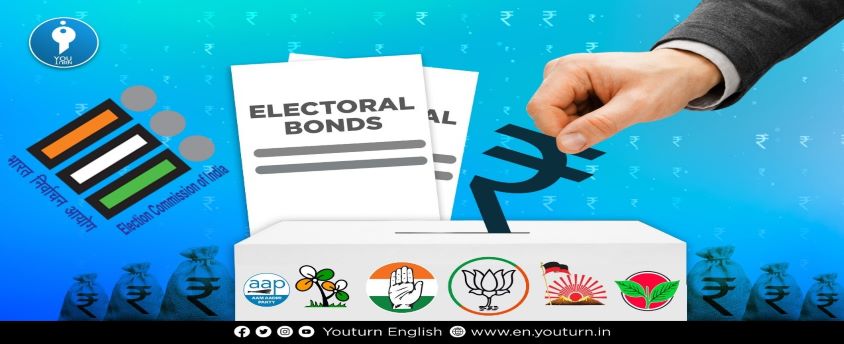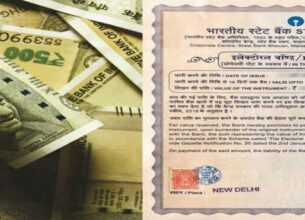Validity of Electoral Bonds Scheme
31, Jan 2023

Prelims level : Election & Electoral Reforms
Mains level : GS-II Salient features of the Representation of People’s Act.
Why in News?
- The Supreme Court is on January 31 scheduled to examine whether petitions challenging the validity of electoral bonds scheme need to be referred to a Constitution Bench.
What is an Electoral Bond?
- Electoral Bond is a financial instrument for making donations to political parties.
- The bonds are issued in multiples of Rs. 1,000, Rs. 10,000, Rs. 1 lakh, Rs. 10 lakh and Rs. 1 crore without any maximum limit.
- State Bank of India is authorised to issue and encash these bonds, which are valid for fifteen days from the date of issuance.
- These bonds are redeemable in the designated account of a registered political party.
- Every party that is registered under section 29A of the Representation of the Peoples Act, 1951 and has secured at least 1% of the votes polled in the most recent Lok Sabha or State election will be allotted a verified account by the Election Commission of India.
- Electoral bond transactions can be made only via this account.
- The bonds are available for purchase by any person (who is a citizen of India or incorporated or established in India) for a period of ten days each in the months of January, April, July and October as may be specified by the Central Government.
- A person being an individual can buy bonds, either singly or jointly with other individuals.
- Donor’s name is not mentioned on the bond.
- During general elections, the central government may specify an additional period of thirty days for sale of these bonds. There have been some occasions when the government has deviated from the specified periodicity for issuance of these bonds.
- For example, the sixth tranche of electoral bonds was issued from 1st-10th November 2018 and electoral bonds were sold in the months of March, April and May during 2019 general elections.
What are the concerns?
- While the Scheme acts as a check against traditional under-the-table donations as it insists on cheque and digital paper trails of transactions, several key provisions of the scheme make it highly controversial.
- Anonymity:
- Neither the donor (who could be an individual or a corporate) nor the political party is obligated to reveal whom the donation comes from.
- In 2019, the Supreme Court held that all political parties who had received donations through electoral bonds must submit details to the Election Commission of India.
- This undercuts a fundamental constitutional principle, the freedom of political information, which is an integral element of Article 19(1) (a) of the Constitution.
- Defeating Transparency:
- It defeats the fundamental principle of transparency in political finance because it conceals from public scrutiny the identity of the corporates and moneybags.
- Asymmetric Opacity:
- The government is always in a position to know who the donor is because the bonds are purchased through the SBI.
- This asymmetry of information threatens to colour the process in favour of whichever political party is ruling at the time.
- Chanel of Black money:
- Elimination of a cap of 7.5% on corporate donations, elimination of requirement to reveal political contributions in profit and loss statements and also the elimination of the provision that a corporation must be three years in existence, undercuts the intent of the scheme.
- Any troubled, dying or shell companies can donate an unlimited amount anonymously to a political party giving them a convenient channel for business to round-trip their cash parked in tax havens for a favour or advantage granted in return for something.
Way Forward:
- There is a need for fixing the governance system and effective regulation of political financing along with bold reforms to break the vicious cycle of corruption and erosion of quality of democratic polity. It is crucial to plug the loopholes in the current laws to make the entire governance machinery more accountable and transparent.
- Voters can help bring in substantial changes by demanding awareness campaigns. If voters reject candidates and parties that overspend or bribe them, democracy would move a step higher.









